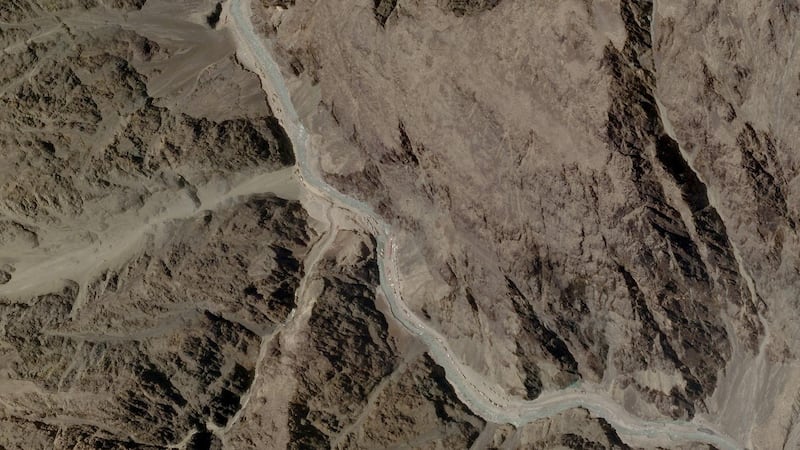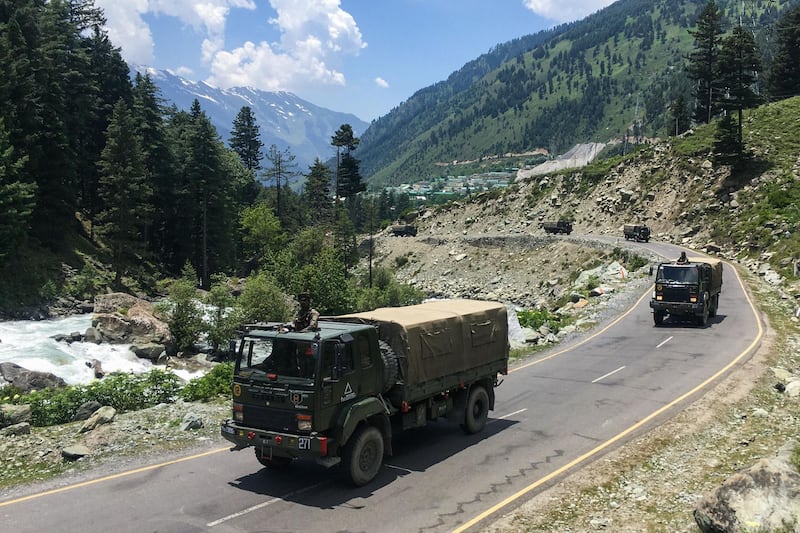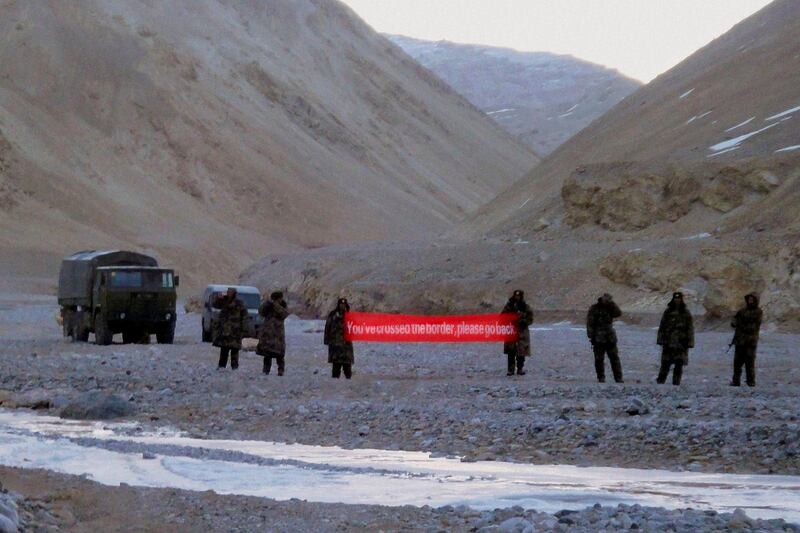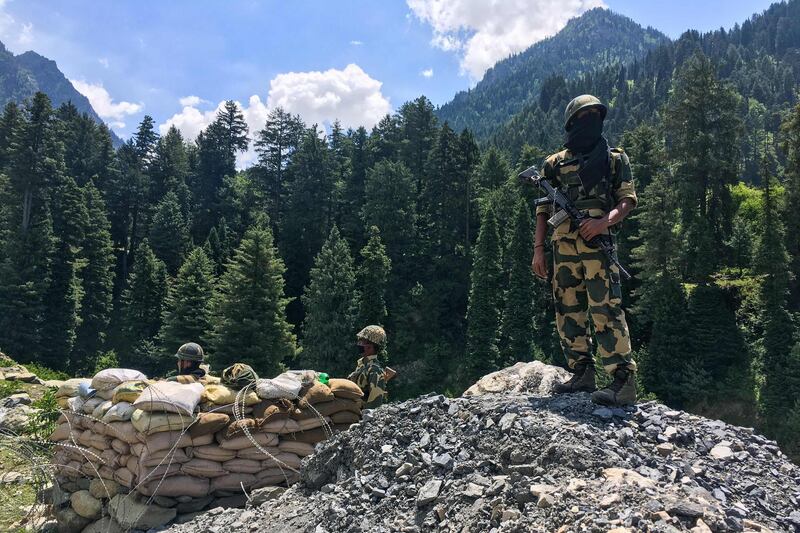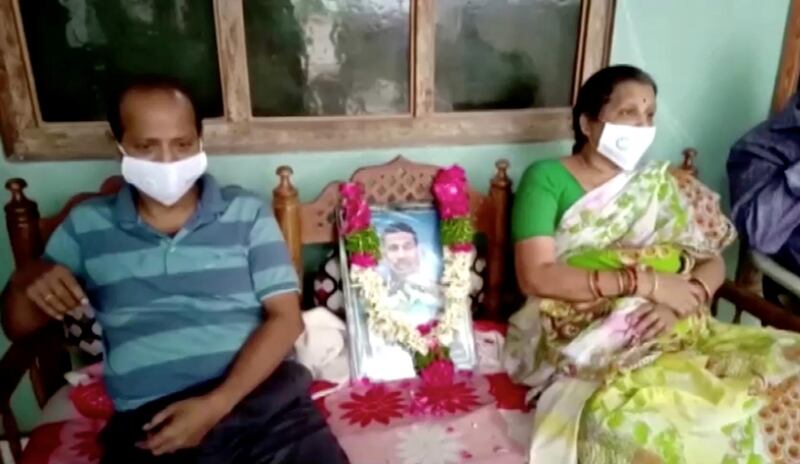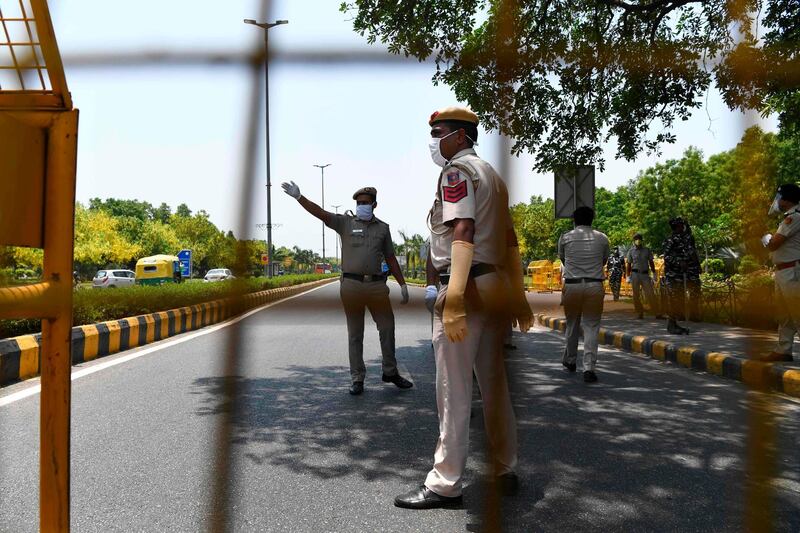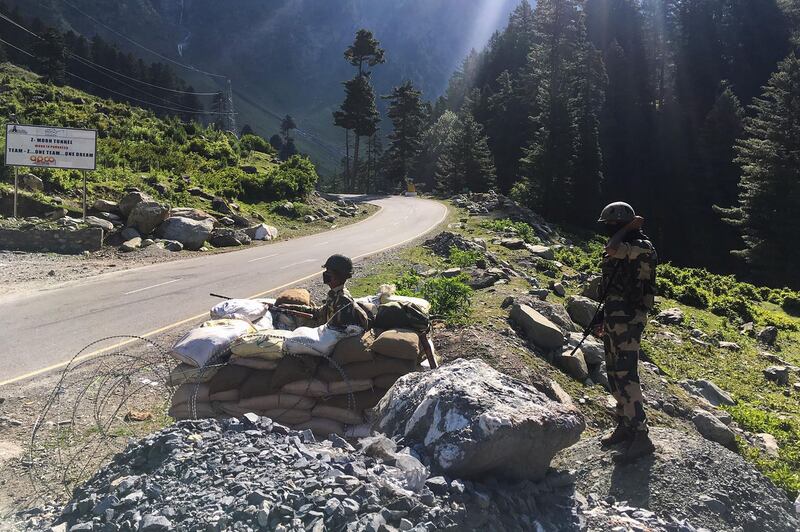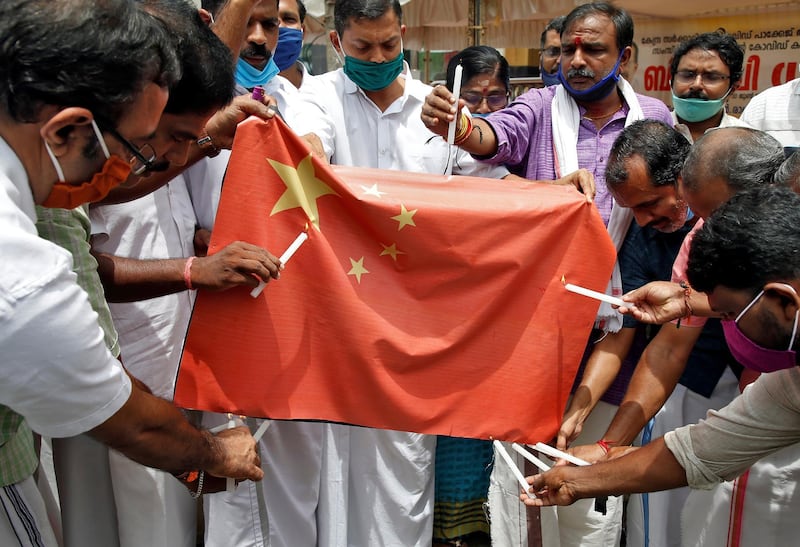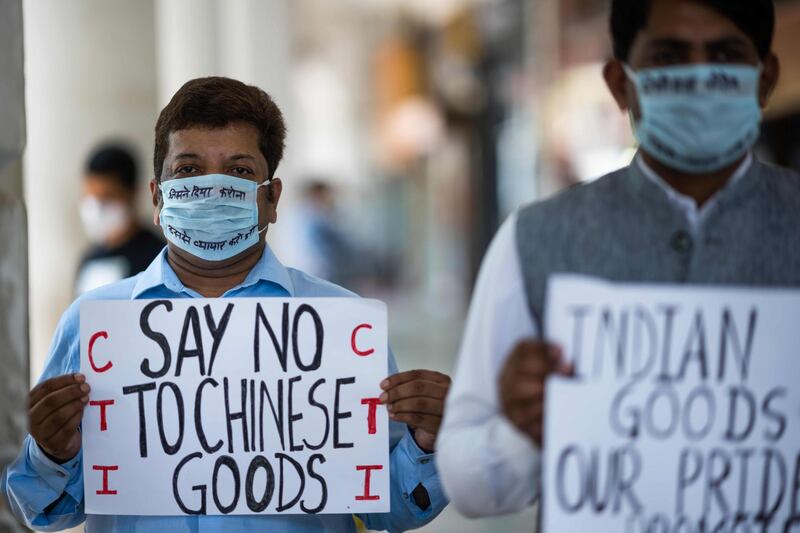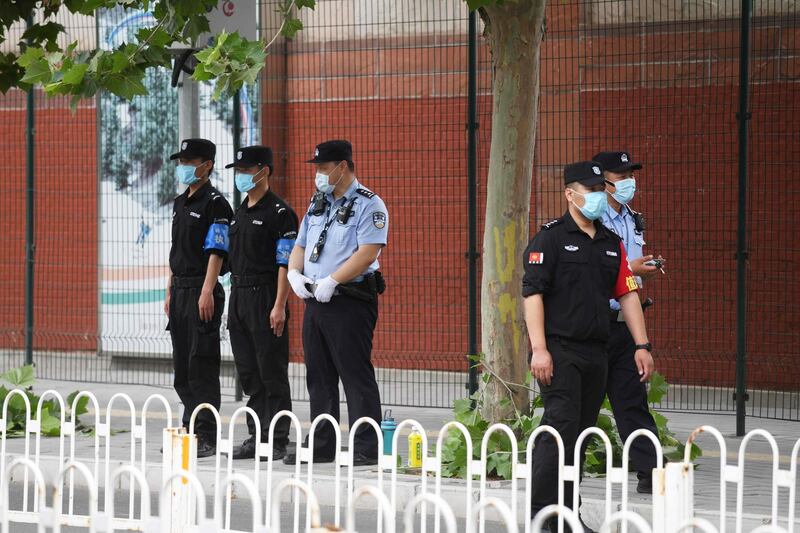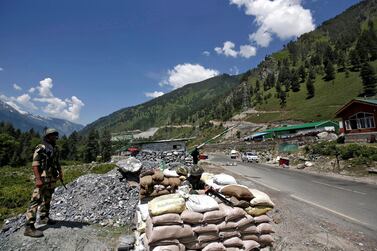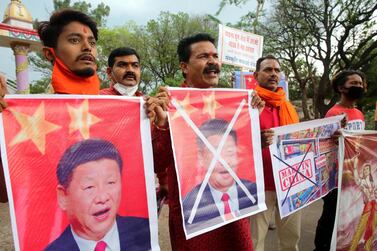China says it has agreed with India to resolve border tensions following the most violent confrontations in decades.
Beijing said on Wednesday it did not want to see any more clashes on the border with India following a clash on Monday that killed at least 20 Indian soldiers. Both countries, it said, were trying to resolve the situation through dialogue, and the situation was controllable and stable.
The two nations' foreign ministers spoke by telephone to calm nerves after a high-altitude melee involving fists, rocks and clubs.
The call between China's Wang Yi and India's Subrahmanyam Jaishankar came as sources said that Indian paramilitaries were being deployed to the area of the skirmish high in the Himalayas opposite Tibet.
China's state broadcaster CCTV, meanwhile, showed footage of People's Liberation Army tanks and soldiers holding live fire drills in Tibet.
Asia expert Michael Kugelman on India-China border skirmish
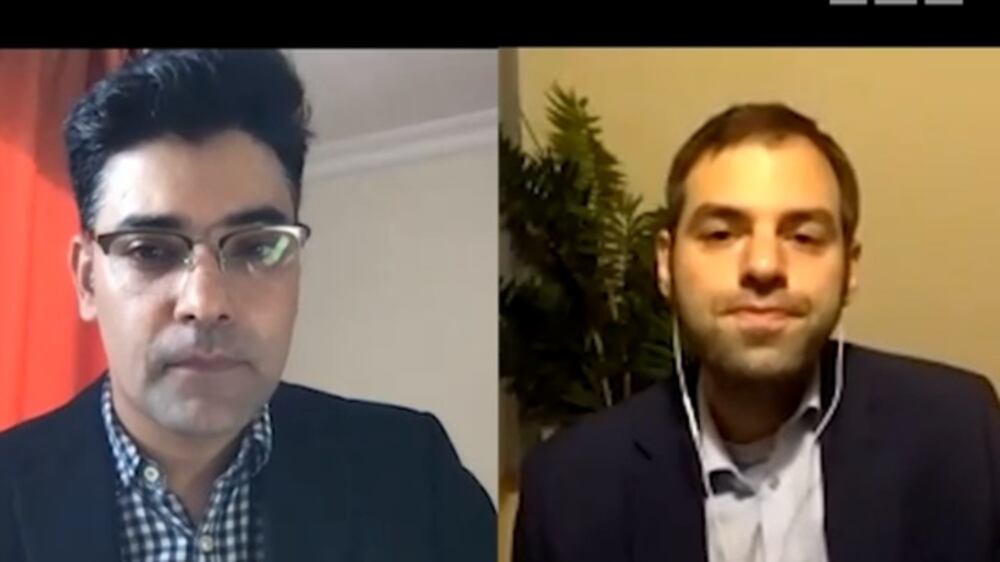
China has refused to confirm if it suffered any casualties in the first deadly clashes at the border in decades, although Indian media said at least 40 Chinese troops were killed or seriously hurt.
The Chinese foreign ministry said in a statement that Mr Wang demanded "India conduct a thorough investigation" and punish those responsible.
"The Indian side must not misjudge the current situation, and must not underestimate China's firm will to safeguard its territorial sovereignty," it added.
Chinese foreign ministry spokesman Zhao Lijian reiterated that China was not to be blamed for the clashes.
“China has lodged strong protests and stern representations with the Indian side. We once again ask the Indian side to act on our consensus, strictly discipline its front-line troops not to cross the line, not make provocations and not to take unilateral actions that might complicate the situation,” Mr Zhao said.
But he said the two sides "will continue to resolve this issue through dialogue and negotiations".
"We, of course, don't wish to see more clashes," Mr Zhao said.
The clashes on Monday reportedly involved intense fighting and no gunfire, in line with longstanding tactics to avoid a full military battle over the disputed 3,500-kilometre border.
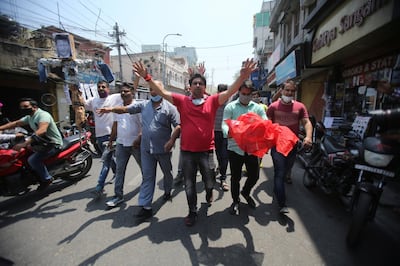
An Indian army source told AFP there was no shooting but there were "violent hand-to-hand scuffles".
The fighting occurred in the precipitous, rocky terrain of the strategically important Galwan Valley, which lies between China's Tibet and India's Ladakh.
The soldiers threw punches and stones at each other, with Chinese troops allegedly attacking their Indian counterparts with rods and nail-studded clubs during the more than six-hour fight, the Hindustan Times reported.
India initially said three of its troops had died, and that there were "casualties on both sides".
But in a statement late Tuesday the army added 17 more critically injured were "exposed to sub-zero temperatures... [and] succumbed to their injuries".
China's defence ministry confirmed the incident had resulted in casualties but did not give the nationality of the victims or any other details.
Both sides gave competing versions of the violence.
Beijing claimed Indian troops "crossed the border line twice... provoking and attacking Chinese personnel, resulting in serious physical confrontation between border forces on the two sides".
But Indian foreign ministry spokesman Anurag Srivastava said the clash arose from "an attempt by the Chinese side to unilaterally change the status quo" on the border.
The recent uptick in tensions began in early May, when several Indian and Chinese soldiers were injured in a clash involving fists and stone-throwing.
Their prickly relationship was strained when India in August revoked the semi-autonomous status of Indian-administered Kashmir and split off Ladakh into a new administrative territory.
Ladakh is partly claimed by Beijing. India meanwhile has been irked by China's backing of Pakistan and an economic corridor going through parts of Kashmir controlled by Islamabad but claimed by India.
Russia's foreign ministry said on Wednesday it hoped India and China would find mutually acceptable ways to ensure security on their border following deadly clashes, the Interfax news agency reported.
The United States - which has mounting frictions with China, but sees India as an emerging ally - said it was hoping for a "peaceful resolution".
The UN called for both sides to "exercise maximum restraint", while Russia welcomed news of subsequent peaceful contacts between the two neighbours.
